chicken feathers falling out
If you have a chicken with missing feathers, there are a few reasons this may be happening. Today we will talk about chicken feathers falling out and what may be causing it.
Raising chickens that are healthy and happy means, you will be not only their owner but their vet as well. Keep this article close so you can refer to it any time you have an issue with missing feathers.
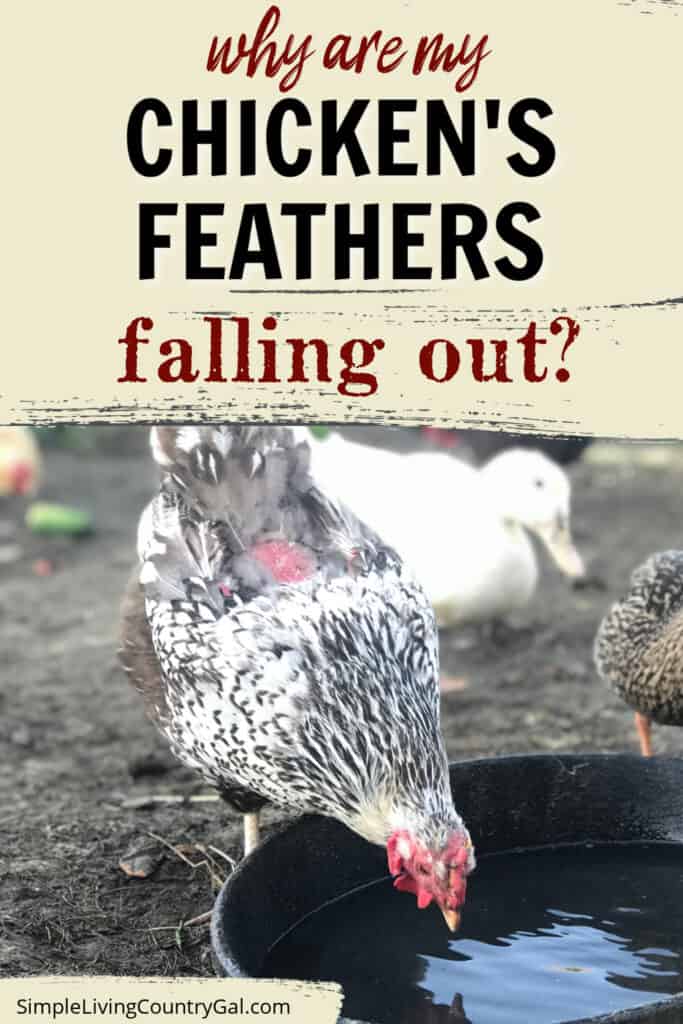
Feather loss in chickens is a common issue that many homesteaders face. And even though it is common, seeing our hens with bald patches can be upsetting to them and us.
Not only that, if a chicken is missing feathers it may seem vulnerable to the rest of the flock causing them to act aggressively towards her. This can make a much bigger issue out of one that may be easy to correct.
Knowing the possible causes of the missing feathers will help you determine the best course of action for not only the chicken in question but also the rest of the flock.
What causes patches of missing feathers on chickens?
Various reasons can cause feather loss in chickens:
- Molting
- Disease
- Parasites
- Malnutrition
- Henpecking
- Aggressive Breeding
Let’s go over each of these so you can narrow down what the cause might be.
Reasons For Feather Loss in Chickens
Remember to consult with your veterinarian on any issue you may have with your chickens. It’s true that many vets will not treat poultry, but they may still be willing to consult with you over the phone, giving valuable treatment advice.
Molting in Chickens
It’s essential to understand that molting is a natural process that happens annually as chickens’ feathers age. Motling means chickens shed their old feathers and grow new ones. This usually happens after their first year of life and in the fall. This way, they will have thick fresh feathers to help them handle the winter temperatures.
Molting Tips:
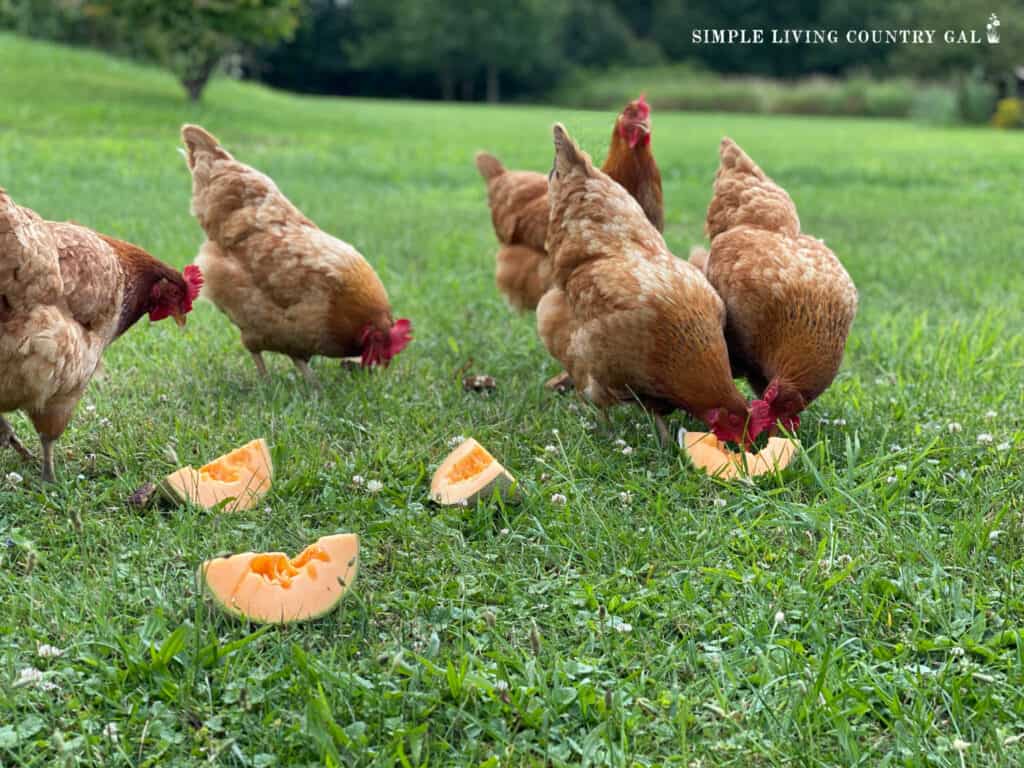
Parasites and Diseases
Mites, lice, and other parasites can cause feather loss by feeding on the chickens’ skin, causing irritation and discomfort. Diseases such as avian influenza or Marek’s disease can also cause feather loss in chickens.
Parasite/Disease Tips:
Separate any chickens you suspect may have a parasite issue or is ill. This will keep the rest of the flock protected from infection. It will also protect the chicken from any possible aggression until she is able to return to the flock.
Malnutrition
Just like humans, chickens need a well-balanced diet that provides sufficient nutrition. Feathers require protein, so if your chickens don’t receive enough of it, you may notice feather loss.
Malnutrition tips:
In terms of a diet that helps prevent feather loss, it’s essential to ensure your chickens have access to feed that contains a sufficient amount of protein. Chicken food containing 16% protein or more is ideal for their diet. You may also want to consider adding other protein-rich foods to supplement their diets, such as eggs or mealworms.
Remember to make changes slowly so you do not upset their digestive system.
What food should I give my chickens to ensure they receive adequate nutrition?
- Give chicken food that contains at least 16% protein. This can be a layer feed that is in crumble or pellet form. Our hens do better on crumble chicken feed, there is less waste and they seem to eat it more.
- Supplement their diet with other protein-rich foods
- Give mealworms
- Give vitamin supplements and electrolytes for 8-10 days
You can also set up temporary chicken runs to give your flock access to fresh ground and a rich new supply of bugs.
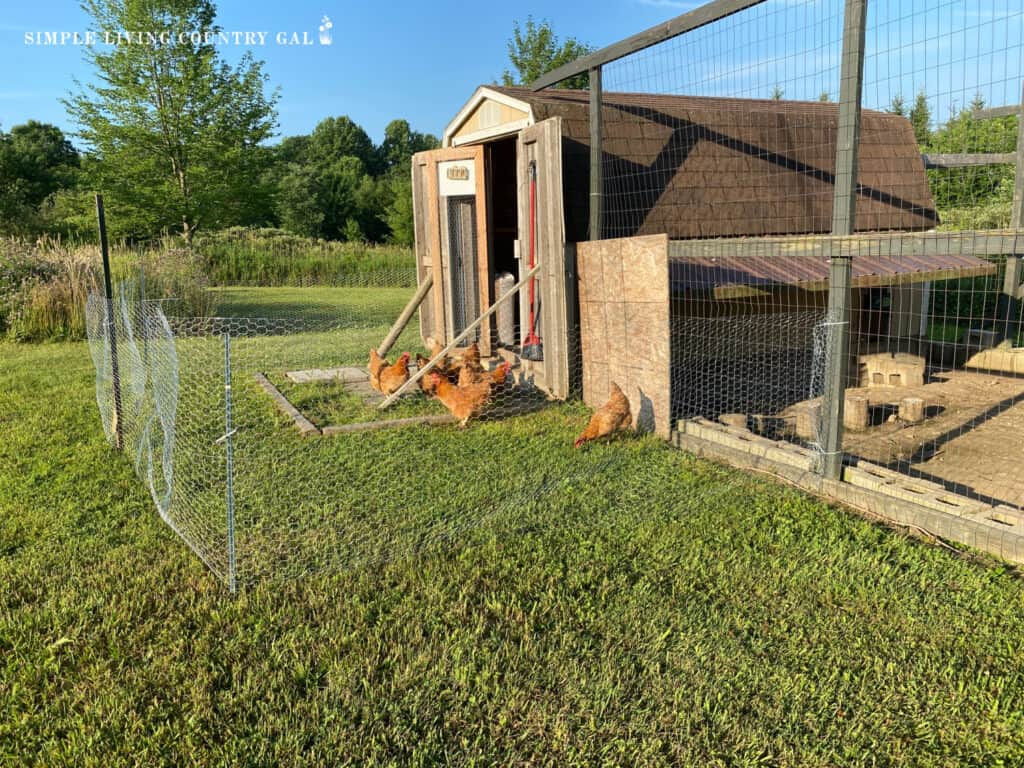
Aggressive Breeding
When a rooster breeds a hen, he will often hold onto the back of the chicken’s neck with his beak. This can cause feather loss on the neck of your chicken. If you see this and your hen is otherwise healthy, you may have an aggressive rooster.
Roosters can be aggressive towards other chickens, especially towards hens they may want to mate with. This aggression can lead to feather loss.
Aggressive Breeding Tips:
One way to prevent aggressive breeding is by separating the rooster from the hens or ensuring you have enough space in your coop to accommodate all your chickens comfortably. You can also invest in a chicken apron for added protection for the feathers.
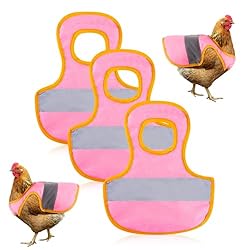
Henpecking
Henpecking is when one more dominant hen pecks at any weaker ones removing their feathers and, in some cases causing bleeding. This is a natural behavior of a flock to remove any weak members that may call in predators. Even though it is natural behavior, it is still disturbing to witness.
Hen Pecking Prevention Tips:
If you notice feather loss in one or a few chickens, it may be due to other chickens pecking or pulling feathers out. One way to prevent this is by ensuring your chickens have sufficient space in the coop. You can also reduce pecking by providing distractions such as pecking blocks or toys.
More HenPecking Resources:
- How to Stop Hen Pecking Before it Starts
- Help for Hen Pecked Chickens
- The Pecking Order in Chickens
Extra Tips to Prevent Feather Loss
Diet – One of the best ways to prevent feather loss in your chickens is by providing them with a well-balanced diet. A diet rich in protein and other essential nutrients is not only important in keeping your chicken’s feathers healthy but also plays a significant role in keeping them healthy overall.
Adding supplements such as chicken vitamins or mealworms to their diet can also be helpful.
Cleanliness – Another way to prevent feather loss is by keeping your coop clean and ensuring that your chickens have access to loose dry soil, sand, or dust baths. Dust baths help remove parasites and keep their feathers healthy.
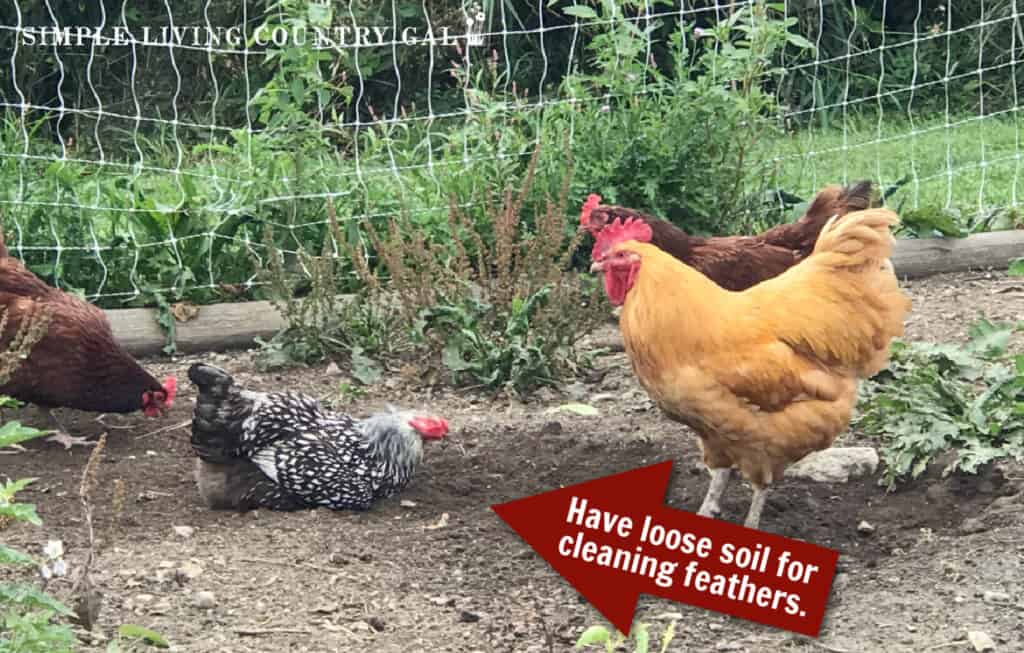
Read: How to Make a Homemade Chicken Dust Bath
Light – Encourage your chickens to spend more time outside as the sun can help feathers to grow more quickly.
Feather loss in chickens can be concerning, but by understanding the reasons behind it and taking preventative measures, you can keep your chickens healthy and comfortable.
Providing adequate nutrition, keeping a clean coop and bathing areas, and ensuring enough space for your birds are all crucial factors in preventing feather loss. If you suspect a disease or parasites are causing feather loss, consult a veterinarian.
With the right care and attention, your chickens will have healthy feathers and happy life.
More Chicken Care Resources:
- Sick Chicken Symptoms
- How to Keep Chickens Cool in the Summer
- Apple Cider Vinegar for Healthier Chickens
